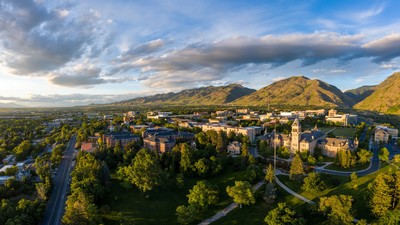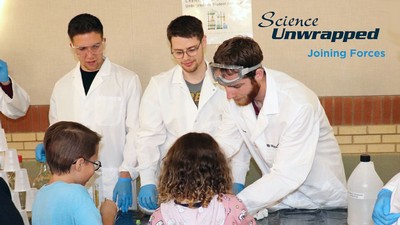Global Food Supply and Medical Advances Impacted By Mapping of Sheep Genome
What: USU Sunrise Session Research Breakfast “Sheep Genomics: Lessons Learned from Science”
Speaker: Noelle Cockett, vice president for Extension and Agriculture and dean of the College of Agriculture
When: Friday, Oct. 28, 7:30-9 a.m.
Where: Little America Hotel, 500 S. Main, Salt Lake City
The International Sheep Genomics Consortium unveiled a draft sequence of the sheep genome in spring 2011. Utah State University researcher Noelle Cockett is part of the consortium that worked to identify the sequence which has global implications in terms of raising sheep that meet the demands for better meat and wool production, improved reproduction and increased resistance to parasites.
Cockett will discuss the research involved in mapping the sheep genome and the many impacts it is making around the world during the Sunrise Session lecture.
“Sheep are amazing in the livestock world because not only are they raised for food — meat, milk and cheese — but also for wool,” Cockett said.
There are more than 1,500 breeds of sheep around the world, and understanding a sheep’s genetic makeup has an impact on global food supply, especially in third-world countries, as well as advances in medical research and animal science research, she said.
The International Sheep Genomics Consortium has actively worked to sequence the sheep genome since 2003. Cockett is the United States representative of the international team that drafted the sequence of the genome, created in partnership with the Beijing Genome Institute. The newly added genetic sequences have opened the door to allow identification of important genetic markers. With more than 10,000 sheep already tested, enough data has been collected to map additional traits in sheep, as well as pinpointing the timing and location of sheep domestication.
After receiving master’s and doctorate degrees in animal breeding and genetics from Oregon State University, Cockett joined Utah State University in 1990. She is currently the vice president for Extension and Agriculture, the dean for the College of Agriculture and the director of the Agricultural Experiment Station at USU.
Cockett’s research program has centered on the identification of genetic markers associated with economically important traits in livestock, including the identification of markers for parasite resistance in sheep and the development of an ovine high-resolution radiation hybrid map. While at USU, Cockett has acquired more than $5 million in external competitive grant funding and is currently directing two USDA/NRIGCP grants, providing large-scale resources for sheep genome research.
USU’s Sunrise Sessions is a breakfast lecture series held quarterly and is designed to highlight timely and cutting-edge research conducted at Utah State University. The lecture is sponsored by Regence BlueCross BlueShield of Utah and is free and open to the public.
To RSVP to the Sunrise Session, call 801-961-1340 or respond online.
Contact:USU Vice President for Research Office and School of Graduate Studies, 435-797-1180
Contact: Noelle Cockett, Vice President for Extension and Agriculture and Dean, College of Agriculture, 435-797-2201, Noelle.cockett@usu.edu
USU administrator and researcher Noelle Cockett is the Sunrise Session speaker in Salt Lake City Friday, Nov. 28.
TOPICS
Research 920stories Solutions 69stories Genetics 63storiesComments and questions regarding this article may be directed to the contact person listed on this page.






